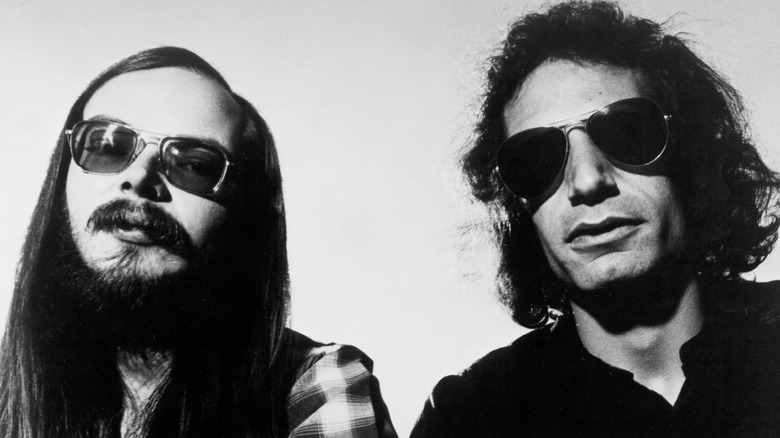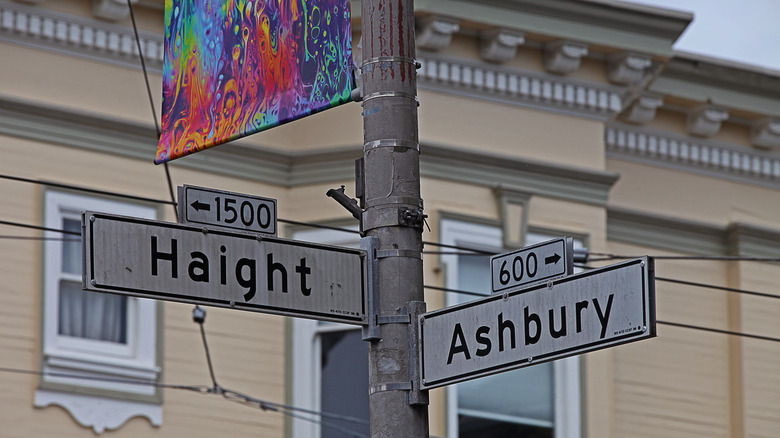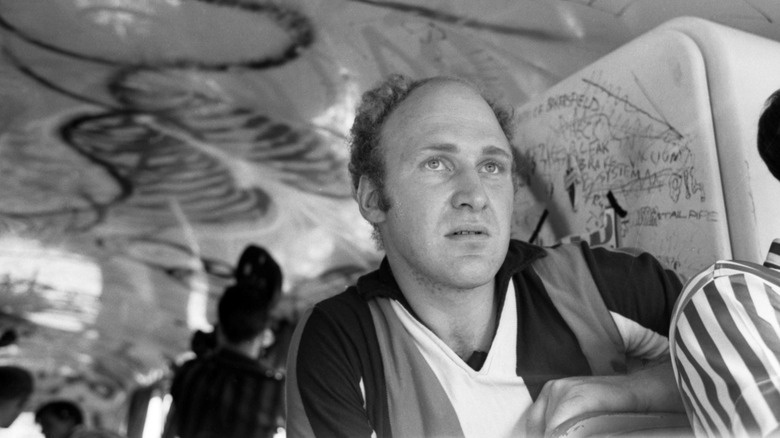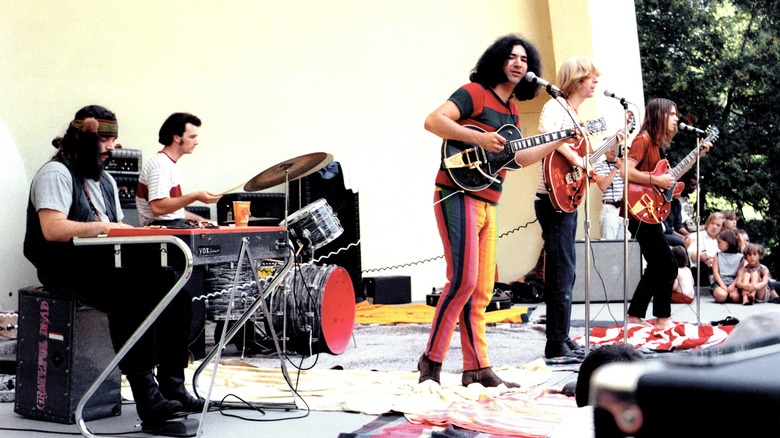The Real Story Behind Steely Dan's Kid Charlemagne
Donald Fagan and Walter Becker of Steely Dan started playing together while students at Bard College in Annandale-on-Hudson, New York, in the late 1960s, per Entertainment Weekly. At the time, they were known as Leather Canary and even had future comedic actor Chevy Chase performing with them on the drums. The duo eventually went on to form Steely Dan, and they released their first album, "Can't Buy a Thrill" in 1972 (via Discogs).
The song "Kid Charlemagne" appeared on the group's fifth album "The Royal Scam," which came out in 1976. Steely Dan had already enjoyed some success with such earlier hits as "Rikki Don't Lose That Number" and "Do It Again." One of the interesting things about "Kid Charlemagne" is that it draws some of its inspiration from a famous figure (some may say infamous) from the 1960s who was associated with a very different kind of music than the Steely Dan sound.
The man behind Kid Charlemagne
As Becker explained to the BBC, the song "Kid Charlemagne" was based partly on the life of Augustus Owsley Stanley. Rolling Stone referred to Stanley as "The King of LSD," — he earned this apt moniker for his scientific prowess at manufacturing the psychedelic drug. So good was he at his craft that "Owsley" is a synonym for a pure form of LSD. As "Kid Charlemagne" alludes to its first verse, Stanley first rose to notoriety in San Francisco.
The story of the real-life Stanley started long before the San Francisco hippie scene of the 1960s, however. He was born on January 19, 1935, to an affluent family in Kentucky, and he was named after his grandfather who was a prominent politician who served in the House of Representatives and the Senate and as the governor of Kentucky, per The New York Times. As a child, Stanley proved to be incredibly bright, but he struggled within the confines of school and wrestled with some psychological issues. He eventually made his way to Berkeley, California, where he took LSD for the first time in 1964 (via Rolling Stone).
Owsley Stanley became king of LSD
As the song "Kid Charlemagne" progresses into its second verse, it begins to tell the story of a fictionalized version of Stanley's rise as a drug dealer and manufacturer. As the song continues, it features the line, "But yours was kitchen-clean," speaking to Stanley's ability to create pure LSD. And apparently, his LSD ended up in the hands of many important figures in 1960s counterculture.
Nicknamed "Bear" for his hairy chest, Stanley supplied the LSD for Ken Kesey (shown above) and his Merry Pranksters and his acid test events, which led to him meeting the Grateful Dead and becoming their manager, financial supporter, and sound engineer for a time (via Rolling Stone). Jimi Hendrix and the Beatles were some of the other rock luminaries who sampled Stanley's LSD, per The New York Times. His LSD went by such colorful names as "Monterey Purple," "Blue Cheer," and "White Lightning." It is estimated that he made more than one million doses of the drug, but some claimed that number could be much more.
Kid Charlemagne not the only song about Stanley
In the final verses of "Kid Charlemagne," Steely Dan imagines the drug dealer's fall from grace with the lines "Now your patrons have all left you in the red" and "Your low-rent friends are dead." There seems to be some paranoia about getting caught that emerges with the line "Clean this mess up else we'll all end up in jail" and "I think the people down the hall know who you are." In real life, Stanley did get caught and spent time in prison in the early 1970s (via Rolling Stone). He learned a new trade behind bars, adding jewelry maker to his resume, and once again had such rock stars as Keith Richards as clients.
Stanley spent his final years living far from the California of his 60s heyday, choosing to make an off-the-beaten-path part of Australia his home in the 1980s. He died on March 13, 2011, in a car accident at 76 years old, per The Guardian. Not only did he inspire Steely Dan's "Kid Charlemagne," but Stanley was also the person behind the Grateful Dead's "Alice B. Millionaire" as well. While he may be best remembered as an artisan of LSD, there is an effort underway to promote his musical legacy. The Owsley Foundation focuses on preserving his reel-to-reel recordings of live concerts of Janis Joplin, Fleetwood Mac, Miles Davis, and the Grateful Dead (shown above) among others, according to the foundation.



